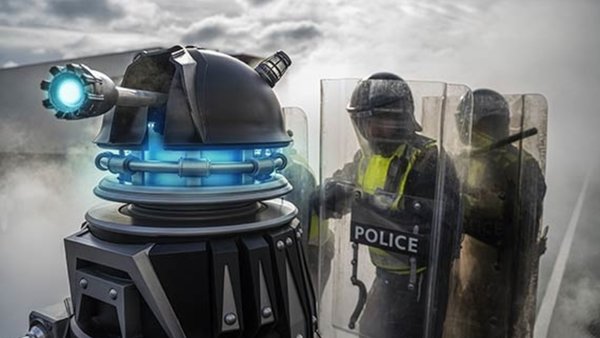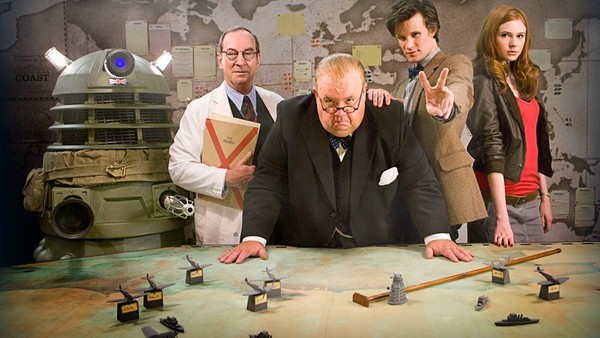Doctor Who: 10 Problems With Revolution Of The Daleks
Doctor Who Review: She does realise that the TARDIS Is Alive, Right?

2021's New Year's Day Special, Revolution of the Daleks, certainly had its highs and lows.
The Doctor, imprisoned at the end of the previous series by the Judoon, was reunited with Captain Jack Harkness. Aside from a brief cameo in last year's Fugitive of the Judoon, the loveable rogue Time Agent has been absent from the show for over ten years.
Jack's presence could have heralded a return to a more familiar Doctor Who during this special. Even the return of the Daleks, with a sleek new look but strangely familiar plan, had audiences sold. However, despite the return of these two Doctor Who icons, the episode still had fans scratching their heads and pointing out some of the problems with its plot, characters, and inconsistencies.
Despite saying goodbye to companions Graham and Ryan, and managing to tie up some hanging plot threads, this instalment of the Doctor Who mythos materialised some more plot holes. Following on from showrunner Chris Chibnall unravelling Doctor Who canon last series (looking at you, Timeless Children), this anticipated special wasn't safe from problematic plot points and, unfortunately, some careless writing.
From moments that break the Whoniverse's established lore, the Doctor acting out of character and wasted Captain Jack potential, these are 10 problems with Revolution of the Daleks.
10. Unoriginal Daleks

Daleks posing as robots and helping out the good guys? If that major plot point from Revolution seems familiar, it's because it's been used in several other Doctor Who episodes - most recently in 2010's Victory of the Daleks.
The Mark Gatiss-penned episode saw the Daleks tricking Winston Churchill and the Eleventh Doctor by pretending to be 'Ironside' machines created by human scientist Bracewell. These Ironsides were to be the UK's first line of defence, just as the Defence Drones were intended to be in Revolution. In reality, Bracewell was revealed to be a Dalek puppet - an android designed to carry out their plan - to be killed when he outlived his usefulness. The Doctor managed to save Bracewell in Victory, unlike his puppet counterpart Leo Rugazzi in Revolution, who the Daleks exterminated.
Similarly, 1966's The Power of the Daleks saw the deadly creatures posing as subservient servants in a human colony, infiltrating and using the humans to build them new 'travel machines'. This was near identical to the Dalek plot in Resolution to use Jack Robinson's resources to rebuild the Dalek army.
Dalek racial 'impurity' has also been a key plot point of various Dalek stories such as Evolution and Victory of the Daleks, but its presence in this episode is nothing new and doesn't add to the mythos. Even the war between the two Dalek factions (mostly played off-screen) was heavily featured in 1988's Remembrance of the Daleks, among others.
Hopefully when the Daleks inevitably return, they'll have some new tricks up their Dalekanium sleeves instead.